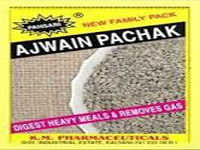A Sudden Outbreak of Nairobi Flies or Dragon Bugs
Nature is full of surprises. Isn’t it? There are so many living beings on this planet we don’t even know fully. Here is a blog on a not-so-common insect named the Nairobi fly, at least not commonly heard in India.
What are Nairobi flies?
Nairobi flies are native to Nairobi, the capital of Kenya, in eastern Africa, and that’s how the name has come. They are also known as dragon bugs and Kenyan flies. The flies have an orange and black colouration and flourish in locations with heavy rainfall. Bright light attracts them like the majority of insects.
The two species of Nairobi fly, Paederus eximius and Paederus sabaeus are little, beetle-like insects. None of them bites humans. Reportedly, although they are native to Africa sometimes move to other regions, having a suitable breeding ground and ample food.
How do Nairobi flies affect humans?
Those flies do not bite. But if disturbed, they produce a strong acidic material, Pederin, that can burn the skin. Therefore, it is best to blow them off gently without touching them. Use soap and water to wash the area where these flies touch the skin.
Unwashed hands should not touch any other part of the body, especially the eyes in case the flies are squashed or pressed against the skin.
Is there any past outbreak of Nairobi flies around the world?
Yes, there were a few outbreaks in the past taking place in only Africa but also on other continents as well. Nairobi flies have caused significant outbreaks in Kenya and other regions of eastern Africa. A considerable number of insects invaded the area in 1998 due to abnormally high rain.
Outside of Africa, outbreaks have already occurred in Paraguay, India, Japan, and Israel.
Overview
A few days earlier, North Bengal, Sikkim and part of Bhutan encountered a sudden outbreak. The insects are not deadly but can cause skin problems. Even while the skin usually heals after a week, or two, scraping can cause the affected area to become infected. Also, Nairobi flies devour farm pests and ruin crops.

















